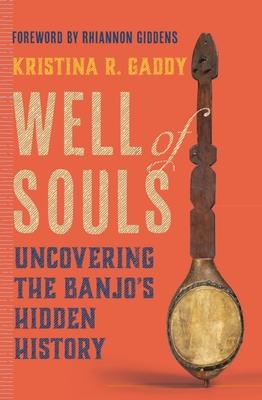In an extraordinary story unfolding across two hundred years, Kristina Gaddy uncovers the banjo's key role in Black spirituality, ritual, and rebellion. Through meticulous research in diaries, letters, archives, and art, she traces the banjo's beginnings from the seventeenth century, when enslaved people of African descent created it from gourds or calabashes and wood. Gaddy shows how the enslaved carried this unique instrument as they were transported and sold by slaveowners throughout the Americas, to Suriname, the Caribbean, and the colonies that became U.S. states, including Louisiana, South Carolina, Maryland, and New York.
African Americans came together at rituals where the banjo played an essential part. White governments, rightfully afraid that the gatherings could instigate revolt, outlawed them without success. In the mid-nineteenth century, Blackface minstrels appropriated the instrument for their bands, spawning a craze. Eventually the banjo became part of jazz, bluegrass, and country, its deepest history forgotten.
